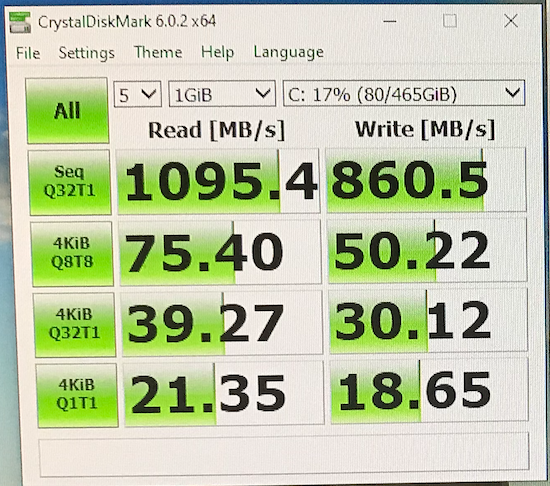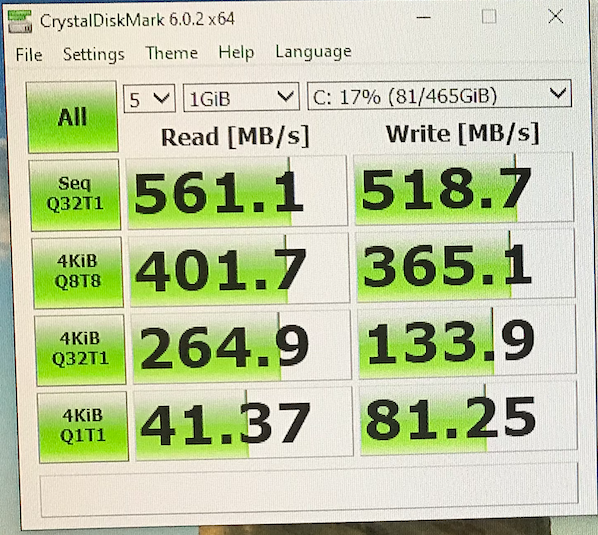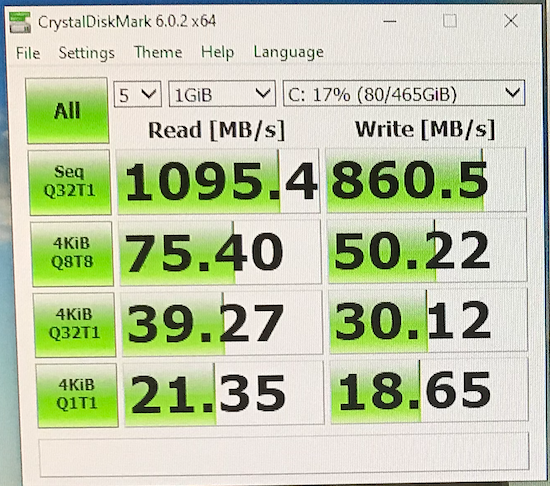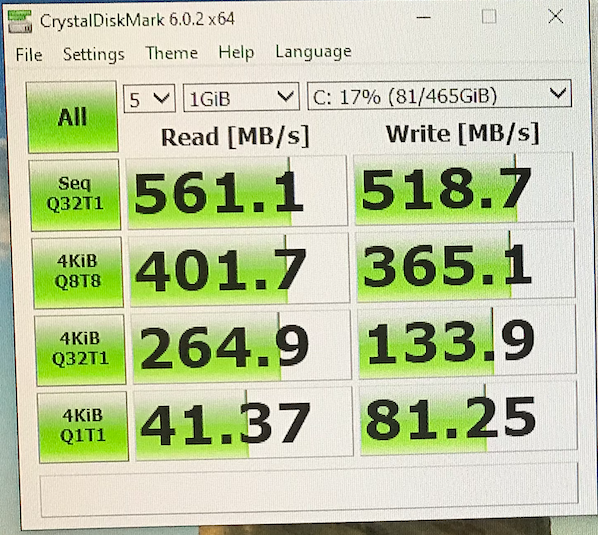
Coffee
-
Posts
12 -
Joined
-
Last visited
Content Type
Profiles
Forums
Downloads
Store
Gallery
Bug Reports
Documentation
Landing
Posts posted by Coffee
-
-
Hello, after adding new vlan interfaces on UnRaid, vm and docker services are failed to start. Does anyone know how to solve it?
VM: Libvirt Service failed to start.
Docker: Docker Service failed to start.
-
2 hours ago, dodgypast said:
You need Windows 10 preview for that functionality:
https://rcpmag.com/articles/2020/06/11/windows-10-amd-machines-now-support-nested-virtualization.aspxTried to upgrade to OS 19645.1 with Windows Insider Programme but still the same. Not sure if someone is able to run Android emulator in Windows 10 VM.
-
Hi, is there anyone able to run Android emulator (e.g. bluestacks) in Windows 10 VM? I tried different ways like enable nested VM script but still fail.
CPU: AMD 3700x
UnRaid OS
Windows 10 VM
-
Hi, I would like to know if it is possible to setup internal network switch for 2 VMs.
I have 2 ports physical nic, and would like to setup Sophos XG and PfSense VM
So, it will be like: ISP <-(1st port)> Sophos XG <-(Internal virtual network switch)-> PfSense <-(2nd port)-> internal physical network switch.
I tried to assign virbr0 to PfSense and do not see any new nic can be setup in interface assignment. Also tried below link with setup new virbr1 but still the same.
https://forums.unraid.net/topic/78993-solved-how-to-create-a-virtual-nic-for-internalisolated-use-only/
Is it PfSense issue or there is any misconfiguration on my UnRaid?
-
I have two display cards: 5700 xt 8GB and 1060 6GB, my motherboard is Gigabyte x570 Aorus Wifi Pro, and CPU is 3700x.
My question is if I want to passthrough two cards into two separate gaming VMs. Will they get both PCIE x8 speed and affect the gaming performance?
-
Hi, I would like to know is 850W PSU enough for below build?
https://outervision.com/b/T88Ddd
CPU: AMD 3700x
Motherboard: Gigabyte x570 Aorus pro wifi
RAM: 2x 16GB RAM
Storage: 2x M.2 SSD
GPU1: PowerColor Red Devil 5700 xt 8GB
GPU2: Inno3D GTX 1060 6GB
Fans: 7x 120mm fans
-
I found the performance of NVMe is not good when it compare with bare metal, even the controller of NVMe is passed through to VM. Is anyone who can reach at least 80% performance of the bare metal?
IOMMU group 12:[126f:2262] 01:00.0 Non-Volatile memory controller: Silicon Motion, Inc. Device 2262 (rev 03)
<hostdev mode='subsystem' type='pci' managed='yes'>
<source>
<address domain='0x0000' bus='0x01' slot='0x00' function='0x0'/>
</source></hostdev>
CrystalDiskMark 6.0.2 x64
Bare metal performance (Read/Write)
Seq Q32T1 3491.1 / 3249.1
4KiB Q8T8 1331.5 / 1485.3
4KiB Q32T1 554.2 / 380.1
4KiB Q1T1 71.90 / 231.5
VM Window 10 (Read/Write)
Seq Q32T1 3247.5 / 2405.9
4KiB Q8T8 620.6 / 423.4
4KiB Q32T1 121.6 / 75.35
4KiB Q1T1 33.62 / 75.25
-
5 hours ago, testdasi said:
1. You can go to pcpartpicker and put in your expected config to get a power estimate. Then add 20% just to be safe or 50% if you plan to overclock (highly NOT recommended).
2. How much does electricity cost for you per KWh? 20W = 0.02KWh / hour = 14.6 KWh/month. According to google, at $0.12/KWh average US price, that's $1.75/month. If you can't afford that, you can't afford any system.

3. Wait till the latest BIOS issues are sorted before buying. I think the latest BIOS messes up PCIe passthrough for Ryzen. Even once issues are sorted, double check with existing users about IOMMU groups.
All I can find is passthrough issue with AMD Threadripper, but seems there is a fix released already. Is there any threads talks about the BIOS issues?
-
Current hardware:
CPU: Xeon E3 1245v3
Motherboard: Gigabyte H97n-wifi
RAM: 16GB (2x8GB)
Storage 1: Crucial MX500 500GB SSD
Storage 2: 4x 2TB 7200rpm harddisk
GPU: Inno3D GTX 1060 6GB
PSU: Antec 550W
Case: Evolv XI am planning to upgrade when the new AMD 3900X is released, but I am thinking whether I should do dual system or make them into one system (my case Evolv X supports dual system).
===============================================================
Usage:
[7x24] NAS storage
[7x24] VM and dockers (lab testing)
Two gaming VM Windows 10Plan A (1 system):
CPU: Ryzen 3900X
Motherboard: ASUS Prime X470-PRO
RAM: 32GB (2x16GB)
Storage 1 [passthrough to Gaming VM1]: 512 GB 970 Pro
Storage 2 [passthrough to Gaming VM2]: 512 GB 970 Pro
Storage 3: 4x 2TB 7200rpm harddisk
Storage 4 [UnRaid cache]: Crucial MX500 500GB SSD
GPU 1 [passthrough to Gaming VM1]: Inno3D GTX 1060 6GB
GPU 2 [passthrough to Gaming VM2]: Inno3D GTX 1060 6GB
PSU: ??
Case: Evolv XPlan B (Dual system):
ATX [Two Gaming VM Windows 10]
CPU: Ryzen 3900X
Motherboard: ASUS Prime X470-PRO
RAM: 32GB (2x16GB)
Storage 1 [passthrough to Gaming VM1]: 512 GB 970 Pro
Storage 2 [passthrough to Gaming VM2]: 512 GB 970 Pro
GPU 1 [passthrough to Gaming VM1]: Inno3D GTX 1060 6GB
GPU 2 [passthrough to Gaming VM2]: Inno3D GTX 1060 6GB
PSU: Revolt X 1000W
Case: Evolv XITX [7x24 NAS storage + VM and dockers]
CPU: Xeon E3 1245v3
Motherboard: Gigabyte H97n-wifi
RAM: 16GB (2x8GB)
Storage 1 [UnRaid cache]: Crucial MX500 500GB SSD
Storage 2: 4x 2TB 7200rpm harddisk
===============================================================I have some questions:
1. If I go for 1 system, I guess I don't need Revolt X 1000W? 850W PSU is it enough?
2. I have done some research about GPU idle power consumption, it seems GTX 1060 idle power is around 10W. I am concerning about power consumption as I need lab test VM, docker and NAS storage with 7x24. I am not sure which one is less power consumption, dual system or 1 system. Two gaming VM are not 7x24 but GPU are still connected when UnRaid is running.
3. Is there any suggestion for my plan?Thank you

-
Hello, just setup a new build for UnRaid, created VM Windows 10 and SSD (Unassigned Device) is passed through to VM Win 10.
I have noticed the read/write performance in VM Win 10 is not great. When comparing Win 10 in VM with native Win 10, I can feel the speed of opening the application is slower, and thus I have done the disk test as below. I would like to know is this result is expected or there is anything else that can be improved? Thank you.
CPU: Xeon E3-1245v3 (Assigned 3c 3t to this VM)
Motherboard: Gigabyte H97n-wifi
SSD: Crucial MX500
Tested but result is same:
1. Bus: SATA, VirtIO, SCSI
2. Win 10 installed on SSD in UnRaid cache
3. Win 10 installed on SSD passthrough (Unassigned Device)
## VM Win 10 in UnRaid

## Native Win 10

<?xml version='1.0' encoding='UTF-8'?>
<domain type='kvm'>
<name>Windows 10</name>
<uuid>0a011a70-3b26-6c5b-c1ee-6a0b4f7b3ffd</uuid>
<metadata>
<vmtemplate xmlns="unraid" name="Windows 10" icon="windows.png" os="windows10"/>
</metadata>
<memory unit='KiB'>8388608</memory>
<currentMemory unit='KiB'>8388608</currentMemory>
<memoryBacking>
<nosharepages/>
</memoryBacking>
<vcpu placement='static'>6</vcpu>
<cputune>
<vcpupin vcpu='0' cpuset='1'/>
<vcpupin vcpu='1' cpuset='5'/>
<vcpupin vcpu='2' cpuset='2'/>
<vcpupin vcpu='3' cpuset='6'/>
<vcpupin vcpu='4' cpuset='3'/>
<vcpupin vcpu='5' cpuset='7'/>
</cputune>
<os>
<type arch='x86_64' machine='pc-i440fx-3.1'>hvm</type>
<loader readonly='yes' type='pflash'>/usr/share/qemu/ovmf-x64/OVMF_CODE-pure-efi.fd</loader>
<nvram>/etc/libvirt/qemu/nvram/0a011a70-3b26-6c5b-c1ee-6a0b4f7b3ffd_VARS-pure-efi.fd</nvram>
</os>
<features>
<acpi/>
<apic/>
</features>
<cpu mode='host-passthrough' check='none'>
<topology sockets='1' cores='3' threads='2'/>
</cpu>
<clock offset='localtime'>
<timer name='rtc' tickpolicy='catchup'/>
<timer name='pit' tickpolicy='delay'/>
<timer name='hpet' present='no'/>
</clock>
<on_poweroff>destroy</on_poweroff>
<on_reboot>restart</on_reboot>
<on_crash>restart</on_crash>
<devices>
<emulator>/usr/local/sbin/qemu</emulator>
<disk type='block' device='disk'>
<driver name='qemu' type='raw' cache='writeback'/>
<source dev='/dev/disk/by-id/ata-CT500MX500SSD1_1807E10EA5F2'/>
<target dev='hdc' bus='sata'/>
<boot order='1'/>
<address type='drive' controller='0' bus='0' target='0' unit='2'/>
</disk>
<controller type='usb' index='0' model='ich9-ehci1'>
<address type='pci' domain='0x0000' bus='0x00' slot='0x07' function='0x7'/>
</controller>
<controller type='usb' index='0' model='ich9-uhci1'>
<master startport='0'/>
<address type='pci' domain='0x0000' bus='0x00' slot='0x07' function='0x0' multifunction='on'/>
</controller>
<controller type='usb' index='0' model='ich9-uhci2'>
<master startport='2'/>
<address type='pci' domain='0x0000' bus='0x00' slot='0x07' function='0x1'/>
</controller>
<controller type='usb' index='0' model='ich9-uhci3'>
<master startport='4'/>
<address type='pci' domain='0x0000' bus='0x00' slot='0x07' function='0x2'/>
</controller>
<controller type='pci' index='0' model='pci-root'/>
<controller type='sata' index='0'>
<address type='pci' domain='0x0000' bus='0x00' slot='0x04' function='0x0'/>
</controller>
<controller type='virtio-serial' index='0'>
<address type='pci' domain='0x0000' bus='0x00' slot='0x05' function='0x0'/>
</controller>
<interface type='bridge'>
<mac address='52:54:00:a9:3a:49'/>
<source bridge='br0'/>
<model type='virtio'/>
<address type='pci' domain='0x0000' bus='0x00' slot='0x03' function='0x0'/>
</interface>
<serial type='pty'>
<target type='isa-serial' port='0'>
<model name='isa-serial'/>
</target>
</serial>
<console type='pty'>
<target type='serial' port='0'/>
</console>
<channel type='unix'>
<target type='virtio' name='org.qemu.guest_agent.0'/>
<address type='virtio-serial' controller='0' bus='0' port='1'/>
</channel>
<input type='tablet' bus='usb'>
<address type='usb' bus='0' port='3'/>
</input>
<input type='mouse' bus='ps2'/>
<input type='keyboard' bus='ps2'/>
<hostdev mode='subsystem' type='pci' managed='yes'>
<driver name='vfio'/>
<source>
<address domain='0x0000' bus='0x00' slot='0x02' function='0x0'/>
</source>
<address type='pci' domain='0x0000' bus='0x00' slot='0x02' function='0x0'/>
</hostdev>
<hostdev mode='subsystem' type='pci' managed='yes'>
<driver name='vfio'/>
<source>
<address domain='0x0000' bus='0x01' slot='0x00' function='0x0'/>
</source>
<rom file='/mnt/user/isos/gtx1060.dump'/>
<address type='pci' domain='0x0000' bus='0x00' slot='0x06' function='0x0'/>
</hostdev>
<hostdev mode='subsystem' type='pci' managed='yes'>
<driver name='vfio'/>
<source>
<address domain='0x0000' bus='0x00' slot='0x03' function='0x0'/>
</source>
<address type='pci' domain='0x0000' bus='0x00' slot='0x08' function='0x0'/>
</hostdev>
<hostdev mode='subsystem' type='pci' managed='yes'>
<driver name='vfio'/>
<source>
<address domain='0x0000' bus='0x00' slot='0x1b' function='0x0'/>
</source>
<address type='pci' domain='0x0000' bus='0x00' slot='0x09' function='0x0'/>
</hostdev>
<hostdev mode='subsystem' type='pci' managed='yes'>
<driver name='vfio'/>
<source>
<address domain='0x0000' bus='0x01' slot='0x00' function='0x1'/>
</source>
<address type='pci' domain='0x0000' bus='0x00' slot='0x0a' function='0x0'/>
</hostdev>
<hostdev mode='subsystem' type='usb' managed='no'>
<source>
<vendor id='0x046d'/>
<product id='0x0825'/>
</source>
<address type='usb' bus='0' port='1'/>
</hostdev>
<hostdev mode='subsystem' type='usb' managed='no'>
<source>
<vendor id='0x046d'/>
<product id='0xc07e'/>
</source>
<address type='usb' bus='0' port='2'/>
</hostdev>
<hostdev mode='subsystem' type='usb' managed='no'>
<source>
<vendor id='0x1532'/>
<product id='0x010d'/>
</source>
<address type='usb' bus='0' port='4'/>
</hostdev>
<memballoon model='none'/>
</devices>
</domain> -
Hello, just setup a new build for UnRaid, created VM Windows 10 and SSD (Unassigned Device) is passed through to VM Win 10.
I have noticed the read/write performance in VM Win 10 is not great. When comparing Win 10 in VM with directly loaded, I can feel the speed of opening the application is slower, and thus I have done the disk test as below. I have also noticed CPU usage is 100% when I was doing the test in VM. I would like to know is this result is expected or there is anything else that can be improved? Thank you.
CPU: Xeon E3-1245v3 (Assigned 3c 3t to this VM)
Motherboard: Gigabyte H97n-wifi
SSD: Crucial MX500
## VM Win 10 in UnRaid

## Win 10 loaded directly

<?xml version='1.0' encoding='UTF-8'?>
<domain type='kvm'>
<name>Windows 10</name>
<uuid>0a011a70-3b26-6c5b-c1ee-6a0b4f7b3ffd</uuid>
<metadata>
<vmtemplate xmlns="unraid" name="Windows 10" icon="windows.png" os="windows10"/>
</metadata>
<memory unit='KiB'>8388608</memory>
<currentMemory unit='KiB'>8388608</currentMemory>
<memoryBacking>
<nosharepages/>
</memoryBacking>
<vcpu placement='static'>6</vcpu>
<cputune>
<vcpupin vcpu='0' cpuset='1'/>
<vcpupin vcpu='1' cpuset='5'/>
<vcpupin vcpu='2' cpuset='2'/>
<vcpupin vcpu='3' cpuset='6'/>
<vcpupin vcpu='4' cpuset='3'/>
<vcpupin vcpu='5' cpuset='7'/>
</cputune>
<os>
<type arch='x86_64' machine='pc-i440fx-3.1'>hvm</type>
<loader readonly='yes' type='pflash'>/usr/share/qemu/ovmf-x64/OVMF_CODE-pure-efi.fd</loader>
<nvram>/etc/libvirt/qemu/nvram/0a011a70-3b26-6c5b-c1ee-6a0b4f7b3ffd_VARS-pure-efi.fd</nvram>
</os>
<features>
<acpi/>
<apic/>
</features>
<cpu mode='host-passthrough' check='none'>
<topology sockets='1' cores='3' threads='2'/>
</cpu>
<clock offset='localtime'>
<timer name='rtc' tickpolicy='catchup'/>
<timer name='pit' tickpolicy='delay'/>
<timer name='hpet' present='no'/>
</clock>
<on_poweroff>destroy</on_poweroff>
<on_reboot>restart</on_reboot>
<on_crash>restart</on_crash>
<devices>
<emulator>/usr/local/sbin/qemu</emulator>
<disk type='block' device='disk'>
<driver name='qemu' type='raw' cache='writeback'/>
<source dev='/dev/disk/by-id/ata-CT500MX500SSD1_1807E10EA5F2'/>
<target dev='hdc' bus='sata'/>
<boot order='1'/>
<address type='drive' controller='0' bus='0' target='0' unit='2'/>
</disk>
<controller type='usb' index='0' model='ich9-ehci1'>
<address type='pci' domain='0x0000' bus='0x00' slot='0x07' function='0x7'/>
</controller>
<controller type='usb' index='0' model='ich9-uhci1'>
<master startport='0'/>
<address type='pci' domain='0x0000' bus='0x00' slot='0x07' function='0x0' multifunction='on'/>
</controller>
<controller type='usb' index='0' model='ich9-uhci2'>
<master startport='2'/>
<address type='pci' domain='0x0000' bus='0x00' slot='0x07' function='0x1'/>
</controller>
<controller type='usb' index='0' model='ich9-uhci3'>
<master startport='4'/>
<address type='pci' domain='0x0000' bus='0x00' slot='0x07' function='0x2'/>
</controller>
<controller type='pci' index='0' model='pci-root'/>
<controller type='sata' index='0'>
<address type='pci' domain='0x0000' bus='0x00' slot='0x04' function='0x0'/>
</controller>
<controller type='virtio-serial' index='0'>
<address type='pci' domain='0x0000' bus='0x00' slot='0x05' function='0x0'/>
</controller>
<interface type='bridge'>
<mac address='52:54:00:a9:3a:49'/>
<source bridge='br0'/>
<model type='virtio'/>
<address type='pci' domain='0x0000' bus='0x00' slot='0x03' function='0x0'/>
</interface>
<serial type='pty'>
<target type='isa-serial' port='0'>
<model name='isa-serial'/>
</target>
</serial>
<console type='pty'>
<target type='serial' port='0'/>
</console>
<channel type='unix'>
<target type='virtio' name='org.qemu.guest_agent.0'/>
<address type='virtio-serial' controller='0' bus='0' port='1'/>
</channel>
<input type='tablet' bus='usb'>
<address type='usb' bus='0' port='3'/>
</input>
<input type='mouse' bus='ps2'/>
<input type='keyboard' bus='ps2'/>
<hostdev mode='subsystem' type='pci' managed='yes'>
<driver name='vfio'/>
<source>
<address domain='0x0000' bus='0x00' slot='0x02' function='0x0'/>
</source>
<address type='pci' domain='0x0000' bus='0x00' slot='0x02' function='0x0'/>
</hostdev>
<hostdev mode='subsystem' type='pci' managed='yes'>
<driver name='vfio'/>
<source>
<address domain='0x0000' bus='0x01' slot='0x00' function='0x0'/>
</source>
<rom file='/mnt/user/isos/gtx1060.dump'/>
<address type='pci' domain='0x0000' bus='0x00' slot='0x06' function='0x0'/>
</hostdev>
<hostdev mode='subsystem' type='pci' managed='yes'>
<driver name='vfio'/>
<source>
<address domain='0x0000' bus='0x00' slot='0x03' function='0x0'/>
</source>
<address type='pci' domain='0x0000' bus='0x00' slot='0x08' function='0x0'/>
</hostdev>
<hostdev mode='subsystem' type='pci' managed='yes'>
<driver name='vfio'/>
<source>
<address domain='0x0000' bus='0x00' slot='0x1b' function='0x0'/>
</source>
<address type='pci' domain='0x0000' bus='0x00' slot='0x09' function='0x0'/>
</hostdev>
<hostdev mode='subsystem' type='pci' managed='yes'>
<driver name='vfio'/>
<source>
<address domain='0x0000' bus='0x01' slot='0x00' function='0x1'/>
</source>
<address type='pci' domain='0x0000' bus='0x00' slot='0x0a' function='0x0'/>
</hostdev>
<hostdev mode='subsystem' type='usb' managed='no'>
<source>
<vendor id='0x046d'/>
<product id='0x0825'/>
</source>
<address type='usb' bus='0' port='1'/>
</hostdev>
<hostdev mode='subsystem' type='usb' managed='no'>
<source>
<vendor id='0x046d'/>
<product id='0xc07e'/>
</source>
<address type='usb' bus='0' port='2'/>
</hostdev>
<hostdev mode='subsystem' type='usb' managed='no'>
<source>
<vendor id='0x1532'/>
<product id='0x010d'/>
</source>
<address type='usb' bus='0' port='4'/>
</hostdev>
<memballoon model='none'/>
</devices>
</domain>







VM and Docker failed to start after adding new vlan interfaces
in VM Engine (KVM)
Posted
Solved. After adding new vlan interfaces, the original br0 cannot get dhcp ip (expected), and I found out DNS is not configured and cannot resolve any ip address. After configured DNS and allowed internet access, docker and vm services are able to be started. Can't figure out why but it is solved.